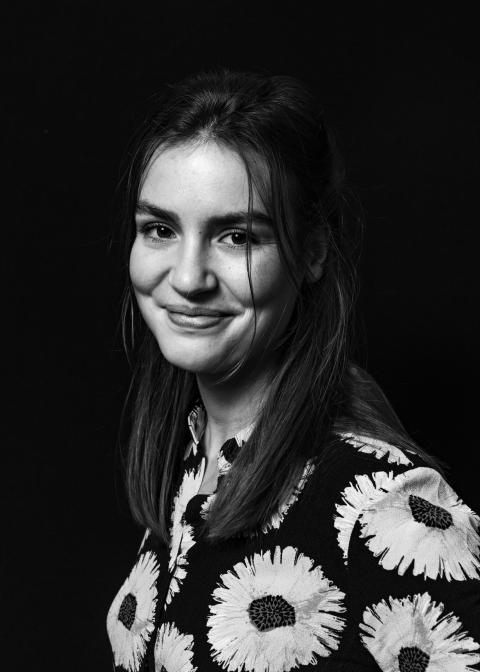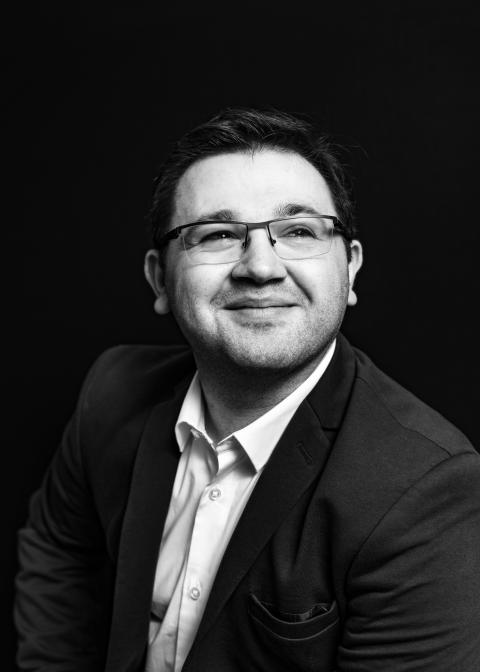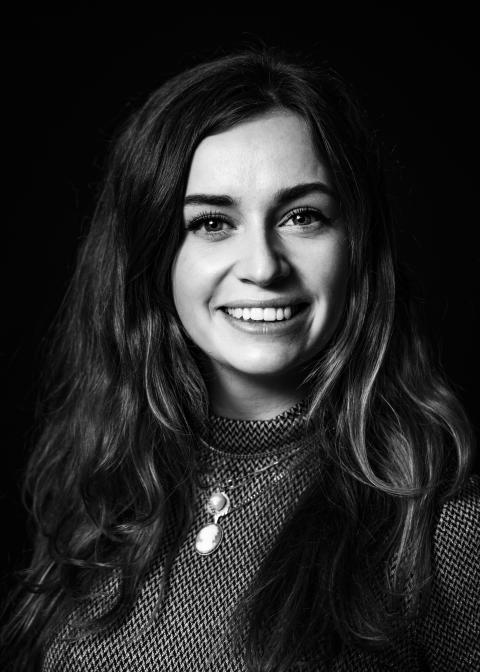Three young do-gooders
Franka Schellekens, Laurentiu-Cristian Ciobotaru, and Romée Geelen all wrote their graduate thesis at the Zero Hunger Lab. They look back on their projects and reflect on their motives.

Being able to help people makes me feel good
Franka Schellekens
Franka Schellekens (24) studied econometrics at Tilburg University from 2015. It made sense with so much mathematical blood in the family, she says. “My mother, my aunt, and my grandmother are mathematicians. It was a very enjoyable study program. I like solving difficult puzzles, and econometrics does that just fine. After graduating in August 2021 ,I started working at Rhythm, a company specializing in healthcare logistics. I’m currently working on an assignment for which I am laying out a hospital ward as efficiently as possible.
I can recommend that any student write their thesis at the Zero Hunger Lab (ZHL). Everyone is ready to help you; there is a real team spirit.
My thesis is about absorption capacity. Simply put, what amount of relief supplies can be distributed, practically speaking, to victims after a disaster has occurred? I learned a lot about humanitarian aid at the ZHL. Did you know that organizing disaster relief is similar to organizing a festival? Think about it: all at once there are a lot of people in one place who all need to eat, drink, sleep, and go to the toilet.
Also noteworthy are the global differences between the networks that provide local responders in the event of a disaster. In Africa it is often the church, in South America it is the soccer fans, and in some parts of the world there are even gang members who ensure fair distribution.”
And is she a do-gooder? “I find it hard to say. Hein Fleuren and Perry Heijne of the ZHL certainly are. In any case, being able to help people makes me feel good.”

I am inspired by the story of poverty reduction. Romania also has poverty
Laurentiu-Cristian Ciobotaru
The Zero Hunger Lab also has foreign students. One is Romanian Laurentiu-Cristian Ciobotaru (24). In 2019, he enrolled for the master’s program in econometrics and mathematical economics at Tilburg University. “I had always planned to study in another country. It’s good for your development as a person if you spend some time abroad. The Netherlands is a nice, open society with good educational quality. Whether there are differences? I’ll mention two: Dutch people are more direct than Romanians. And the Dutch eat mainly to get energy; for us it’s mainly a social event. In other words: Romanians live to eat; Dutch people eat to live.
For my thesis at the Zero Hunger Lab, I researched cash transfers in Burundi, Sudan, and Nigeria. This is the donation of cash to affected citizens so that they can make a living as they see fit. This not only has a positive effect on people’s food security, but it is also very good for their self-worth. Furthermore, it has been shown that it doesn’t matter for the success of the cash transfer whether a man or a woman is the head of the family, when you might expect women to be a little more efficient with the money.
I had a great time at the Zero Hunger Lab. Everyone is very enthusiastic. It’s like a little family; “gezellig,” as you say. I am inspired by the story of poverty reduction. Romania also has poverty. There were families where only one of the children could attend school. That made an impression on me. Yes, I would like to make the world a better place.”

The knowledge we gain here, can also
be applied in the third worldRomée Geelen
Romée Geelen (24) is here to stay at the Zero Hunger Lab. After completing her studies in econometrics, she was asked to participate in a PhD program. The final grade that she received for her thesis, a nine, must have contributed to that. “I’m going to be working on the Zero Waste Project. It’s about reducing food waste in Europe,” she explains enthusiastically.
“Here, of course, there is less starvation than in the Third World, but the knowledge that we gain here can be applied there later. My thesis at the ZHL is about dietary optimization. It suits me; I’m always into healthy eating. I researched the cheapest diets for Indonesia, using local products such as cassava, corn, tofu, and peanuts. With people getting enough protein, minerals, and vitamins, of course. An average household of eight people spends about 66,000 rupees a day on this; converted, that’s about 4 euros. A vegetarian diet is slightly more expensive.
Whether it was fun at the ZHL? I must say that because of covid I was only at the university at my graduation, but the atmosphere was very relaxed. Students sometimes complain about the supervision during internships, but mine was top- notch. I was provided with a clean dataset and was able to get started right away. I was given a lot of freedom in my research; it made me more independent.”
And, when she has her PhD, off to the whole wide third world? “Who knows? I love to travel and explore.”
Text: Peter de Jong
Photos: Bram Belloni
Date of publication: 12 May 2022
